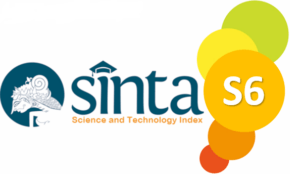KEKUATAN RETORIKA DALAM KHOTBAH SEBAGAI SARANA PENDIDIKAN AGAMA KRISTEN YANG TRANSFORMATIF
Kata Kunci:
Retorika Khotbah, Pendidikan Agama Kristen, Transformasi Spiritual, Komunikasi Teologis, Ethos Pathos Dan LogosAbstrak
Penelitian ini bertujuan untuk mengkaji kekuatan retorika dalam khotbah sebagai sarana yang efektif dan transformatif dalam Pendidikan Agama Kristen. Khotbah, sebagai bentuk komunikasi teologis, tidak hanya menyampaikan doktrin dan ajaran iman, tetapi juga membentuk sikap, karakter, dan respons rohani jemaat. Dalam konteks ini, retorika—yakni kemampuan berbicara yang persuasif, menyentuh emosi, dan menyampaikan pesan secara jelas—berperan penting dalam meningkatkan daya pengaruh penyampaian firman. Dengan pendekatan studi pustaka kualitatif, penelitian ini menganalisis unsur-unsur retorika klasik (ethos, pathos, logos) dalam khotbah Kristen dan relevansinya terhadap transformasi spiritual dan moral jemaat. Hasil penelitian menunjukkan bahwa pengkhotbah yang memiliki integritas (ethos), mampu menyentuh hati jemaat (pathos), dan menyampaikan firman secara logis dan sistematis (logos), lebih berpotensi menciptakan perubahan nyata dalam kehidupan pendengar. Dengan demikian, kekuatan retorika dalam khotbah bukan hanya memperkuat aspek komunikatif, tetapi juga menjadi alat pedagogis yang strategis dalam Pendidikan Agama Kristen yang membentuk iman, karakter, dan partisipasi aktif umat percaya.
This research aims to examine the power of rhetoric in sermons as an effective and transformative means in Christian Religious Education. Sermons, as a form of theological communication, not only convey the doctrines and teachings of the faith, but also shape the attitude, character, and spiritual response of the congregation. In this context, rhetoric—the ability to speak persuasively, touch emotions, and convey a message clearly—plays an important role in increasing the influence of the delivery of words. With a qualitative literature study approach, this study analyzes the elements of classical rhetoric (ethos, pathos, logos) in Christian preaching and their relevance to the spiritual and moral transformation of the church. The results of the study show that preachers who have integrity (ethos), are able to touch the hearts of the congregation (pathos), and deliver the word logically and systematically (logos), are more likely to create real changes in the lives of listeners. Thus, the power of rhetoric in sermons not only strengthens the communicative aspect, but also becomes a strategic pedagogical tool in Christian Religious Education that shapes the faith, character, and active participation of believers.




